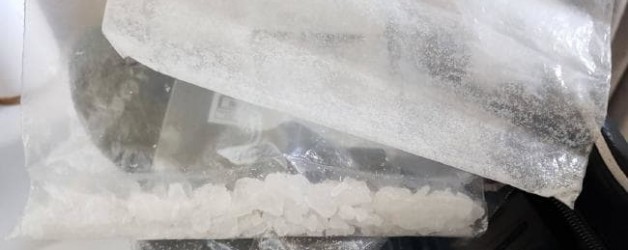ICE deliveries cheaper than pizza is ensuring the war on drugs wages on across the Sunshine Coast.
It’s not just troubled youths using either, with lawyers, doctors and surgeons among the professionals becoming addicted as they cope with trauma, or deal with work pressures, The Sunshine Coast Daily reports.
Anecdotally, cocaine use is rising in prevalence, but remains expensive, while heroin is still being used by “old time” drug addicts.
Sunshine Coast CIB officer in charge, Detective Senior Sergeant Daren Edwards said last year’s major raids had slowed the flow of ice into the region, but rising cases of imported ice were aiding a resurgence in the scourge.
“Ice is still pretty predominant here,” Det Snr Sgt Edwards said.
He said cocaine use was happening in some night-time precincts, but the main cause of offences, including property theft, remained ice.
“It is frustrating,” he said.
Emily W, a provisional psychologist and admissions manager at The Health Retreat, a private rehab facility west of Maleny, said they were treating people from all over Australia, with ice the most common addiction patients were trying to kick.
“It’s not just the Sunshine Coast,” she said.
“Ice is very cheap and very accessible. It comes a lot through the post and through deliveries.
“It is a lot cheaper than alcohol.”
The Reesville-based facility has treated more than 2000 people in its six years of operation.
Emily said they’d had clients tell them it was easier, and cheaper, to order a delivery of ice than a pizza.
“For a night out it’s more affordable to get ice then alcohol,” she said.
She said professionals were among their common clients, with the “performance pressure” so big many turned to ice, sometimes cocaine, to cope.
“We’ve had lawyers, doctors, surgeons from across the country,” Emily said.
She said younger patients were also common, with ecstasy use another drug issue patients were seeking help with.
She said heroin used to be one of the more common addictions, but the cheap street price of ice had seen heroin addictions decline in most parts except Melbourne, where it was “still big”.
Alcohol abuse remained a common issue for middle-aged people dealing with depression or anxiety.
Emily said the common denominator with all patients was they were dealing with some sort of trauma or underlying issue, when using drugs or abusing alcohol.
“It’s amazing, you would think it’s just the lower socio-economic people that take these drugs,” she said, recalling a high-profile legal professional in his 60s who presented with ice addiction.
Moffat Beach Brewing Co owner Matt Wilson said he’d seen rare instances of cocaine use in venues, but that didn’t mean it wasn’t prevalent.
“I’ve come from Sydney where it was absolutely rife,” he said.
Sunshine Coast Local Medical Association president Dr Roger Faint said ice was not a regular issue for GPs to deal with, but said it was affecting young people and causing significant issues in emergency departments and had caused regular problems in Caloundra previously.
“It’s cheaper than drinking,” Dr Faint said.
“It affects young people. It’s a super adrenaline hit.”
He said the come downs were particularly dangerous, and often times ice abuse was linked to other underlying mental health issues, which had to be diagnosed to help treat the person, but ultimately it was down to the addict to want to help themselves if treatment was to be successful.

